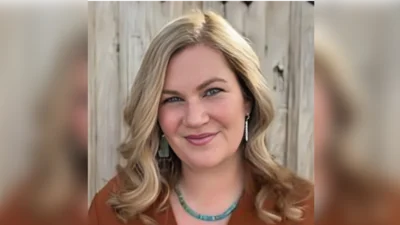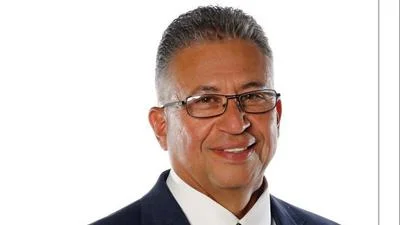Two cement, jersey barriers have been constructed near the corner of Tramway and Central to prevent cars from parking and selling drugs to occupants, according to District 9 City Councilor Renee Grout.
The northeast corner of Tramway and Central has been the location and distribution center for drugs and gang activity for more than five years, with the mayor, city departments, and elected leaders ignoring the problem, according to Colleen Aycock, founder of Women Taking Back Our Neighborhood (WTBON), a citizen activist group dedicated to decreasing local crime.
“With no restrooms there, the city has a toxic mess on its hands from drug ruin and fecal waste, not to mention the ongoing battle to keep the lights on from wire thefts and gunshots,” Aycock said.
“Neighbors and businesses have suffered, have gone out of business, moved, or have hired armed guards to protect their products and clientele,” she said. “Open-air drug dealings can be witnessed daily. Gangs ‘rent’ the corners there to the homeless/panhandlers by the hour.”
The corner is the New Mexico Department of Transportation’s (DOT) property. However, since 2009, the city has been responsible for maintaining it, according to a 2009 contract between the state and the city.
Locals have come to know the area as a park, which originated in 2004 after a piece of art titled “La Luz de Amistad” was placed there. In 2009, the city wanted to landscape the area, so it entered into a contract with DOT for the “project,” or what is now referred to as La Luz de Amistad Park in the legal transaction between the city and state, according to the contract.
It also stipulates that the city will maintain the “project” land improvements and lighting.
“I am constantly amazed at the talent and creativity of our City staff. Parks and Rec, Solid Waste, and Municipal Development staff met with APD [Albuquerque Police Department] and my staff to talk about the problem and design a solution on-site that we hope will help our officers put a stop to this illegal activity,” Grout said.
Although she believes the temporary barriers are a step in the right direction, Aycock said it shouldn't have had to take so long for city leaders to find solutions to this problem of preventing serious crime, bodily injury, senseless deaths, and harm to the environment on this corner.
Aycock said that the city has not maintained a drug-free, human-pathogen-free, safe area, with lights, in compliance with the 2009 contract, and that DOT needs to step up to take action.
In 2021, KRQE reported that residents threatened to boycott the Four Hills Shopping Center until the trash, drugs, and even human feces, were cleaned up. The shopping center is home to Sprouts grocery store, Einstein Bros. Bagels, and Icon Cinema. Aycock said the grocery stores in the shopping center have since hired security, but with limited hours.
“It takes all of us working together to keep our City clean and safe, and I’ll never give up!” Grout said.
Grout said the temporary barriers are working so far. Albuquerque Parks and Recreation Department (PRD) staff are fabricating more permanent gates and landscape barriers to block access of vehicles and large carts at La Luz de Amistad Park, while still allowing for Solid Waste staff to clean and maintain it.
Grout said PRD is using recycled materials they had on hand for the project. The rest will be purchased with District 9 set-aside funding for parks. There is no time frame for when the permanent work will be finished or when gates will be installed.
“These changes will make a huge difference to the health and safety of South East ABQ and our commercial and neighborhood areas,” said Aycock.
Grout previously installed a bed of rocks on the medians by the property to keep the panhandlers away but they simply removed the rocks or threw them at cars or other panhandlers, according to Aycock.
“It's always hit or miss when it comes to city policies,” Aycock said.
Grout and her staff worked with state Rep. Meredith Dixon, Pamelya Herndon, and Debbie Sariñana during the last legislative session to get capital outlay funding to combine with District 9 funds for a better fence at the top of La Luz de Amistad, between the park and a New Mexico Department of Transportation (DOT) drainage area. The area is not visible from Tramway, Central, or I-40, but it’s a popular and dangerous place for illegal camping, according to the councilor.
Since the temporary barriers were constructed, Sharon Alexander, who has been monitoring this corner for WTBON for three years, said the park has cleared out.
“They, the homeless have moved further down the road,” Alexander said. “You can tell because it looks like a mess.”









